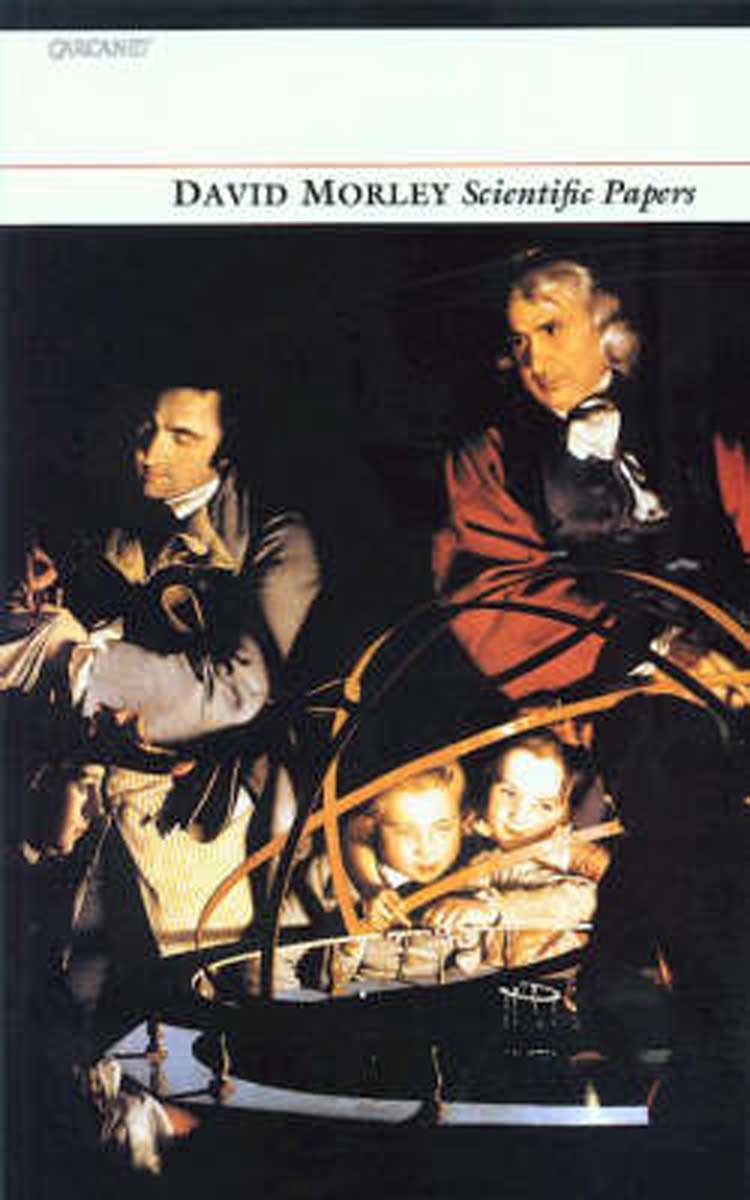Scientific Papers
David Morley declares, "The concept of this text is that each piece of writing is a scientific paper of itself, a series of findings. The practice of writing science and poetry is, for me, a single discussion of perception carried out with the same eye and ear, and in the same laboratory of language". A scientist by training, he has spent a decade getting this book into shape, while at the same time developing strategies for teaching ceative and scientific writing at all levels.
He takes his epigraph from Mandelstam, writing "On the Naturalists" in 1932: "Darwin's compositional method is the serial development of signs. Bunches of examples. The selection of hetereogeneous series..." Mandelstam attributes Darwin's search for order to a kind of aesthetic necessity, a poetics grounded in verifiable facts and details, in the connections drawn from vlosely observed and chronicled phenomena. In a poem personal, historical and geological times can co-exist and be given – for the duration of the poem on the page and of its echo in memory – equivalent weight. Sir Philip Sidney saw the poet as free from the trammels of fact; Morley reverses Sidney's elgeant polemic: a poem must be answerable in how and what it observes, and also aware of and true to its own processes.
He takes his epigraph from Mandelstam, writing "On the Naturalists" in 1932: "Darwin's compositional method is the serial development of signs. Bunches of examples. The selection of hetereogeneous series..." Mandelstam attributes Darwin's search for order to a kind of aesthetic necessity, a poetics grounded in verifiable facts and details, in the connections drawn from vlosely observed and chronicled phenomena. In a poem personal, historical and geological times can co-exist and be given – for the duration of the poem on the page and of its echo in memory – equivalent weight. Sir Philip Sidney saw the poet as free from the trammels of fact; Morley reverses Sidney's elgeant polemic: a poem must be answerable in how and what it observes, and also aware of and true to its own processes.
About the author
David Morley is an ecologist and naturalist by background. His poetry has won fourteen writing awards and prizes, including the Templar Poetry Prize, the Poetry Business Competition, an Arts Council of England Writer's Award, an Eric Gregory Award, the Raymond Williams Prize and a Hawthornden Fellowship. His previous collection "The Invisible Kings" (Carcanet, 2007) was a Poetry Book Society Recommendation. He is also known for his pioneering ecological poetry installations within natural landscapes and for the creation of "slow poetry" sculptures and I-Cast poetry films. His "writing challenges" podcasts are among the most popular literature downloads on iTunes worldwide: two episodes are now preloaded on to all demo Macs used in Apple Stores around the world. He has performed his poems and stories at many of the major literary festivals. He writes essays, criticism and reviews for the Guardian and Poetry Review. A leading international advocate of creative writing, he wrote "The Cambridge Introduction to Creative Writing" and is co-editor with the Australian poet Philip Neilsen of The Cambridge Companion to Creative Writing. He currently teaches at the University of Warwick.


